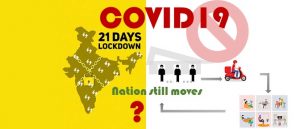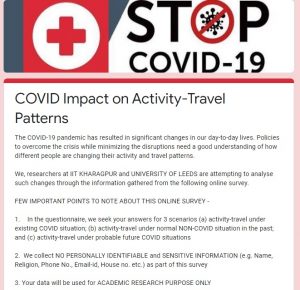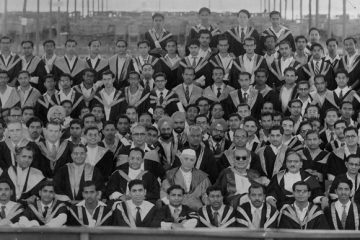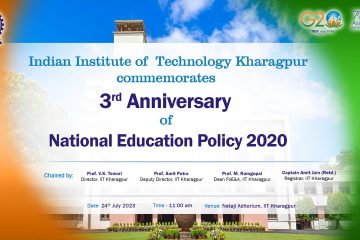
A joint study by the Ranbir and Chitra Gupta School of Infrastructure Design and Management and the University of Leeds is trying to look into how Covid-19 might change social activities and travel patterns
 A national lockdown for 21 days. Work from home. Classes on Zoom. Shopping for essentials only when it is truly essential. The entire family thrown into a togetherness they could scarcely afford earlier.
A national lockdown for 21 days. Work from home. Classes on Zoom. Shopping for essentials only when it is truly essential. The entire family thrown into a togetherness they could scarcely afford earlier.
Covid-19 pandemic has changed our lives drastically in a matter of a few days. Suddenly, nothing can be taken for granted. Not even the morning newspaper or the milk at the doorstep.
How different does the world seem to people? Is the difference being uniformly felt?
In these days of social media heist, when everyone is being bombarded with information about Covid-19, have the right information about the disease percolated down?
The lockdown is bound to end. The pandemic will retreat eventually. But will things go back to normal? Or will there be a new normal where people will be forced to revisit their choices of how they shop, travel, socialize and spend their leisure?
Nothing is known for certain. But as people know more about the disease, the continuing threat from it till the world of medicine comes up with a wonder drug to resist it, they are gradually forming ideas about how they are going to pick up their lives from here.
A joint study conducted by Ranbir and Chitra Gupta School of Infrastructure Design and Management of IIT Kharagpur and the University of Leeds is trying to look into what people are thinking. The team believes that “policies to overcome the crisis, while minimizing the disruptions, need a good understanding of how different people are changing their activity and travel patterns.”
In order to gather more information about how people intend to carry on with their lives, the public perceptions about Covid-19, how responsive and how dependable they find the administration in the public health crisis, the researchers are reaching out to as many people possible through a survey.
Dr. Arkopal K. Goswami, Assistant Professor of RCGSIDM, and research scholars Eeshan Bhaduri and Manoj BS, who are part of this research team, say that such unprecedented times may give us rich data on the travel behaviour of the heterogeneous population of India. Are people walking to the closest grocery store, instead of driving their car or riding their motorcycle to a grocery store far away? Are people making greater use of online platforms for their daily needs? How frequently are they working from home? “Such data will not only give us a glimpse of how COVID-19 has changed the activities and travel patterns, but it also may help researchers in planning for sustainable urban development for the future,” said Prof. Goswami.
Dr. Charisma Choudhury, research collaborator from University of Leeds and Associate Professor at the Institute for Transport Studies and School of Civil Engineering at UoL, adds that the current worldwide situation is so unprecedented, that there was no scope to device data-driven policies to tackle the scenario. “The ongoing collaboration between the University of Leeds and IIT Kharagpur enabled us to quickly delve to address this gap. With insights about travel behaviour in the current, pre-COVID19 and hypothetical future scenarios, the research can be immensely useful when India and other countries around the world formulate plans to transition from the current lockdown to normal scenarios,” said Prof. Choudhury.
In addition to India, the survey has also been released in Bangladesh. The team is also working with partners in other developing countries such as Indonesia, Brazil, South Africa, etc. so as to tailor-make the survey for their situation and release it there as well. This will enable the researchers to make a comparative analysis of the change in travel and activity patterns across nations.
The questionnaire seeks the respondent’s answer for 3 scenarios (a) activity-travel under existing COVID situation; (b) activity-travel under normal NON-COVID situation in the past; and (c) activity-travel under probable future COVID situations.
You too can participate in this study by giving your own comments at any of the links below. Do feel free to share this link and forward the link to your friends (specifically in your respective home towns) and to your extended family members.
Find the link [FOR FB] – https://forms.gle/PPCLrKCwXr2uz9q78
Find the link [FOR TWITTER] – https://forms.gle/tjGzqzHytSfbNih48
Find the link [FOR LinkedIn] – https://forms.gle/E6coumkisSEDAuiF9



